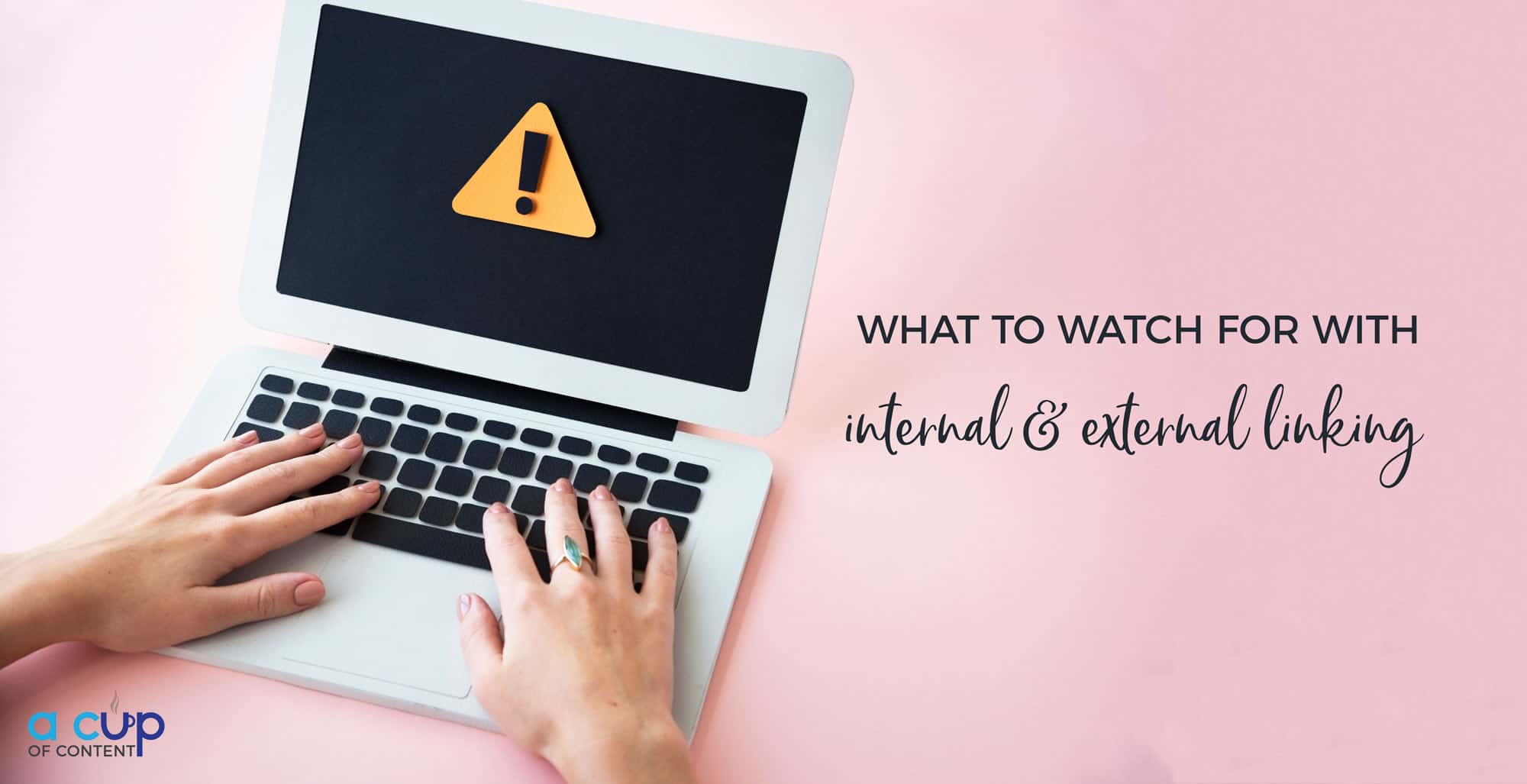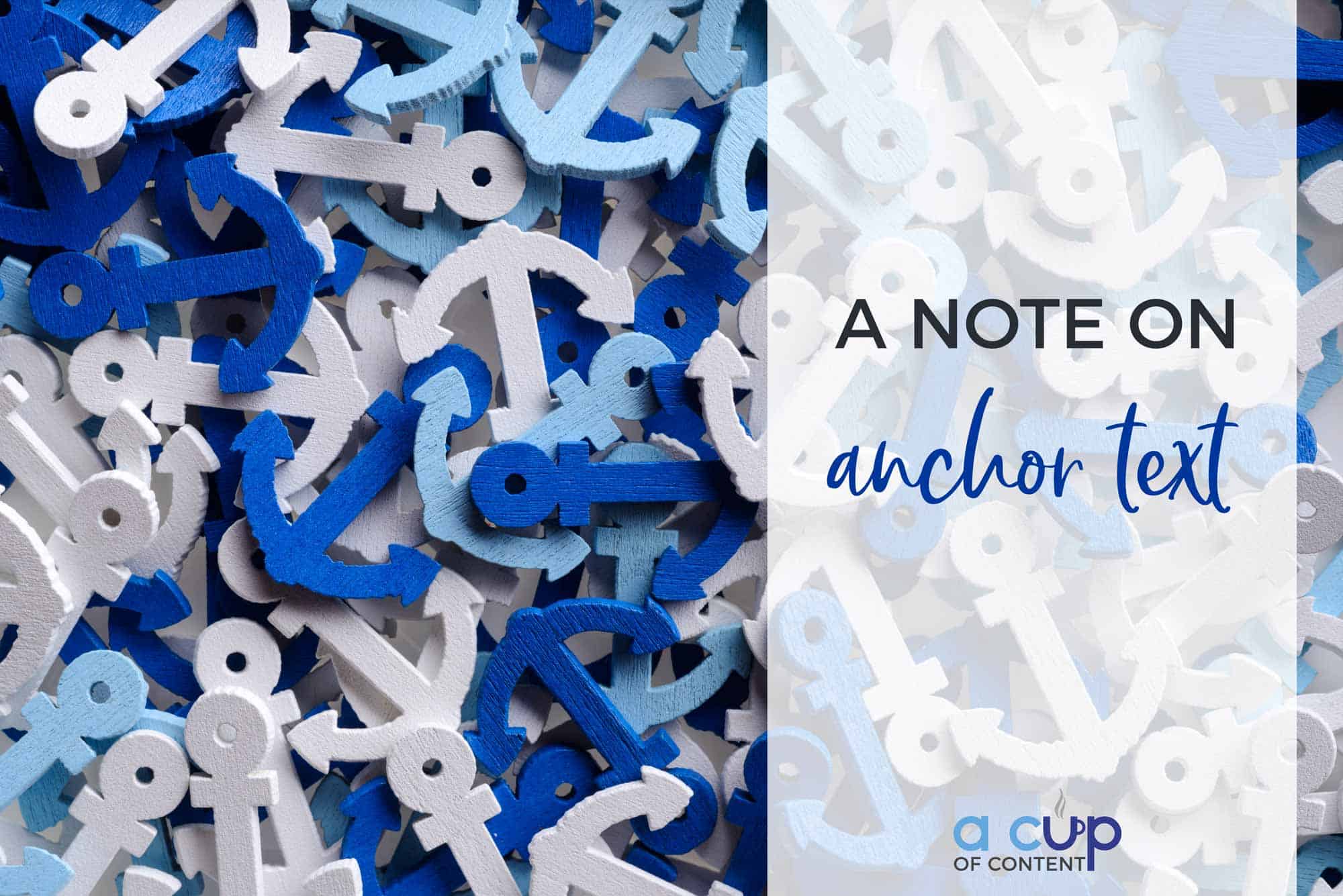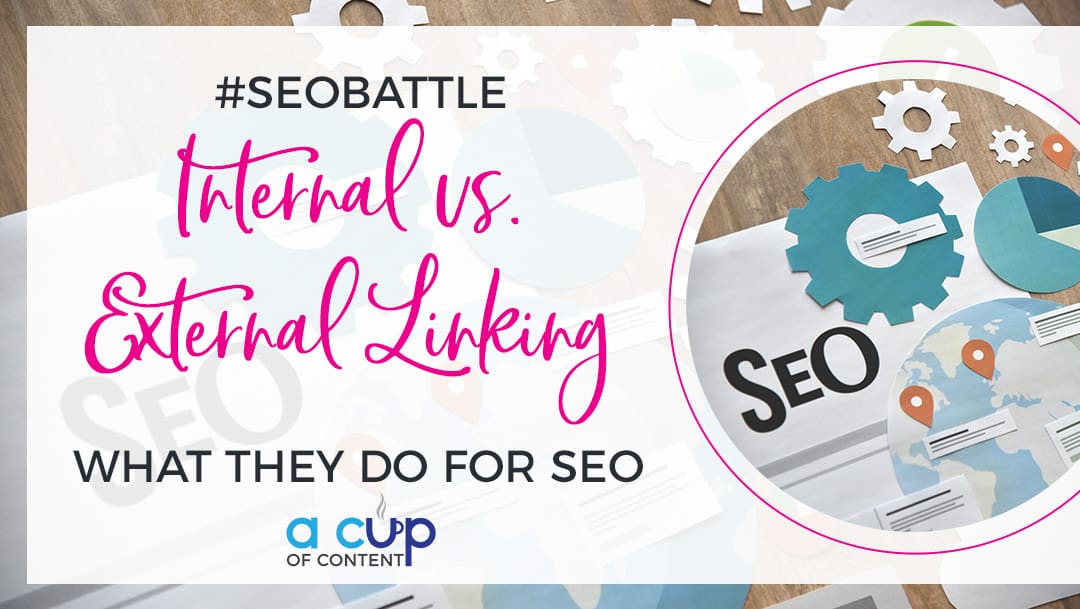Internal vs. external linking: What they do for your SEO
Let's decide on a winner for this #SEObattle: internal vs. external linking and which one helps your SEO most? Let's break them down and learn which one is most important for your SEO…and how to write the accompanying content for each.
Internal linking
Internal links are the links that you have within your own website. For example, we could link to our #EspressoShots blog post “How to fix the Yoast SEO plugin bug” because 1) it's a blog post about SEO, and 2) it's linking to a related, relevant topic to this blog post you're reading right now. Both of these factors are important to your SEO ranking (which we'll cover the reasons for in just a few moments).
External linking
External links are the links that you use to link to other websites OR how other websites link to your content. For example, we can link to a page on Moz's website that details what external links are. The article title, “What are External Links?” only shows up in the SEO Title of the page, as shown here:


What internal and external linking do for your SEO
It's quite simple, really.
Internal and external links provide relevancy.
For internal linking, relevancy tells the search engine the depth of the content within your own website. If you link to a related article within your own website, search engines can create a better search experience for people surfing the web for their desired information.
For external linking, relevancy tells the reader contextual information. This means that you are providing a sort of “proof” that what you're writing about has importance across the web from other reputable sources on the same topic. For example, we know that Search Engine Journal has this great blog post about why linking is still fundamental in growing your SEO ranking. SEJ is a leader in SEO information, and the topic is also relevant to this post that you're reading right now. It's a win-win for them (being linked to from an external source that is discussing a similar topic) and us (we are externally linking to a website with authority on the same subject).

What to watch for with internal vs. external linking
Let's look at a real-life example of internal vs. external linking. I've received several emails from a certain blog that ask me to consider linking to their social media graphic. Here are the logistics of that request:
- The infographic is about the impact of social media on sports marketing.
- The request is from a website dedicated to betting on sports in the UK.
When building a link strategy, it's important to consider relevancy. First, the request came to me here at A Cup of Content. I'm guessing their search for “social media agency” somehow brought them to my site (although this is merely a guess). Unfortunately for both parties, my website doesn't market to people who bet on sports in the UK.
Here is where relevancy plays a key role.
Because I do still have a social media agency, I recommended that I write the blog post on that site and then link to them from there. It made more sense for me to write a blog post about the impact social media has on sports marketing from my other business than it did here because I can actually attract sports-affiliated business (i.e. sports ticketing websites) there. It's definitely a long shot, but it's not quite as far-reached than it would be to write about it here.

A note on anchor text
“Anchor text” is the actual text used on the page that has the link attached to it. In the above links, you'll notice that I included the keywords in the text that was being used for both the internal and external links. This also provides additional relevancy that is important in SEO and ranking.
So who wins the battle on internal vs. external links?
While it's important to include both internal and external links on every page of your website, external links are more important. But this doesn't mean that you shouldn't include internal links on every page. Ideally, you want to include an internal link within the body of every page on your website and not just a “related articles” or something in the sidebar that only gives categorical links. Remember to always ask yourself, “Is it clearly relevant?” If it is, link away! If it's not, find something that is.
Want to join the discussion?
Watch the Facebook Live we did on #TheCoffeeBreakLIVE and join the discussion! Remember: if you type LIVE in the comments, you can sign up for the CoffeeBot and get a friendly notification 15 minutes before our live show each Wednesday at 11:30 a.m. CST!
Need the short version?
Get your TL;DR right here, baby!

